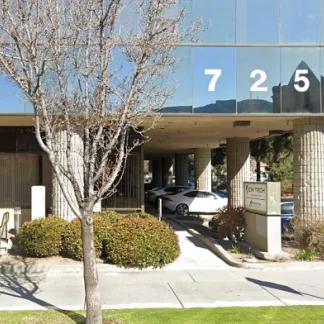AEGIS Treatment Centers
AEGIS Treatment Centers assists individuals struggling with mental health issues...
Ventura County Behavioral Health Department is a mental health and drug facility located in Santa Paula, California with dedicated programs for youth, transitional-age youth, young adults, adults, the elderly, and the hearing impaired. This drug rehab facility offers medication-assisted treatment (MAT), detox, residential treatment, outpatient treatment, and aftercare.
MAT is the use of FDA-approved medication in combination with therapy to address both the physical and psychological aspects of addiction. Ventura utilizes modalities like cognitive and dialectical behavioral therapies to address destructive thought patterns and promote healthier life choices.
During detox, medical professionals provide around-the-clock care while the client’s body is safely cleansed of addictive substances. Staff are available to address any complications that may occur. Medication is provided to mitigate withdrawal effects.
Residential care is provided in a non-institutional setting. Clients attend individual and group counseling in a supportive environment.
Outpatient is a step down from residential programs. Clients continue therapy while they gradually return to their daily lives. Participants continue building upon life skills and start to utilize those skills outside of the program.
Aftercare is a means to prevent relapse. Clients can continue to attend therapy, receive program referrals, and access recovery education materials.
Services at Ventura County Behavioral Health Department are free to those under the age of 18. This facility also accepts Medi-Cal. Major insurance providers like Aetna, Anthem, and Cigna generally cover addiction services. However, it is advised that you contact your insurance provider to confirm what your out of network benefits cover.
Contact us for more information: (805) 933-8433

Connect with Ventura County Behavioral Health Department by calling their admissions team directly.
(805) 933-8433 Website Get DirectionsCognitive Behavioral Therapy (CBT) is a therapy modality that focuses on the relationship between one's thoughts, feelings, and behaviors. It is used to establish and allow for healthy responses to thoughts and feelings (instead of unhealthy responses, like using drugs or alcohol). CBT has been proven effective for recovering addicts of all kinds, and is used to strengthen a patient's own self-awareness and ability to self-regulate. CBT allows individuals to monitor their own emotional state, become more adept at communicating with others, and manage stress without needing to engage in substance abuse.
Dialectical Behavior Therapy (DBT) is a modified form of Cognitive Behavioral Therapy (CBT), a treatment designed to help people understand and ultimately affect the relationship between their thoughts, feelings, and behaviors. DBT is often used for individuals who struggle with self-harm behaviors, such as self-mutilation (cutting) and suicidal thoughts, urges, or attempts. It has been proven clinically effective for those who struggle with out-of-control emotions and mental health illnesses like Borderline Personality Disorder.
Group therapy is any therapeutic work that happens in a group (not one-on-one). There are a number of different group therapy modalities, including support groups, experiential therapy, psycho-education, and more. Group therapy involves treatment as well as processing interaction between group members.
In individual therapy, a patient meets one-on-one with a trained psychologist or counselor. Therapy is a pivotal part of effective substance abuse treatment, as it often covers root causes of addiction, including challenges faced by the patient in their social, family, and work/school life.
Dialectical Behavior Therapy (DBT) is a modified form of Cognitive Behavioral Therapy (CBT), a treatment designed to help people understand and ultimately affect the relationship between their thoughts, feelings, and behaviors. DBT is often used for individuals who struggle with self-harm behaviors, such as self-mutilation (cutting) and suicidal thoughts, urges, or attempts. It has been proven clinically effective for those who struggle with out-of-control emotions and mental health illnesses like Borderline Personality Disorder.
Group therapy is any therapeutic work that happens in a group (not one-on-one). There are a number of different group therapy modalities, including support groups, experiential therapy, psycho-education, and more. Group therapy involves treatment as well as processing interaction between group members.
In individual therapy, a patient meets one-on-one with a trained psychologist or counselor. Therapy is a pivotal part of effective substance abuse treatment, as it often covers root causes of addiction, including challenges faced by the patient in their social, family, and work/school life.
Group therapy is any therapeutic work that happens in a group (not one-on-one). There are a number of different group therapy modalities, including support groups, experiential therapy, psycho-education, and more. Group therapy involves treatment as well as processing interaction between group members.
In individual therapy, a patient meets one-on-one with a trained psychologist or counselor. Therapy is a pivotal part of effective substance abuse treatment, as it often covers root causes of addiction, including challenges faced by the patient in their social, family, and work/school life.
In individual therapy, a patient meets one-on-one with a trained psychologist or counselor. Therapy is a pivotal part of effective substance abuse treatment, as it often covers root causes of addiction, including challenges faced by the patient in their social, family, and work/school life.
AEGIS Treatment Centers assists individuals struggling with mental health issues...